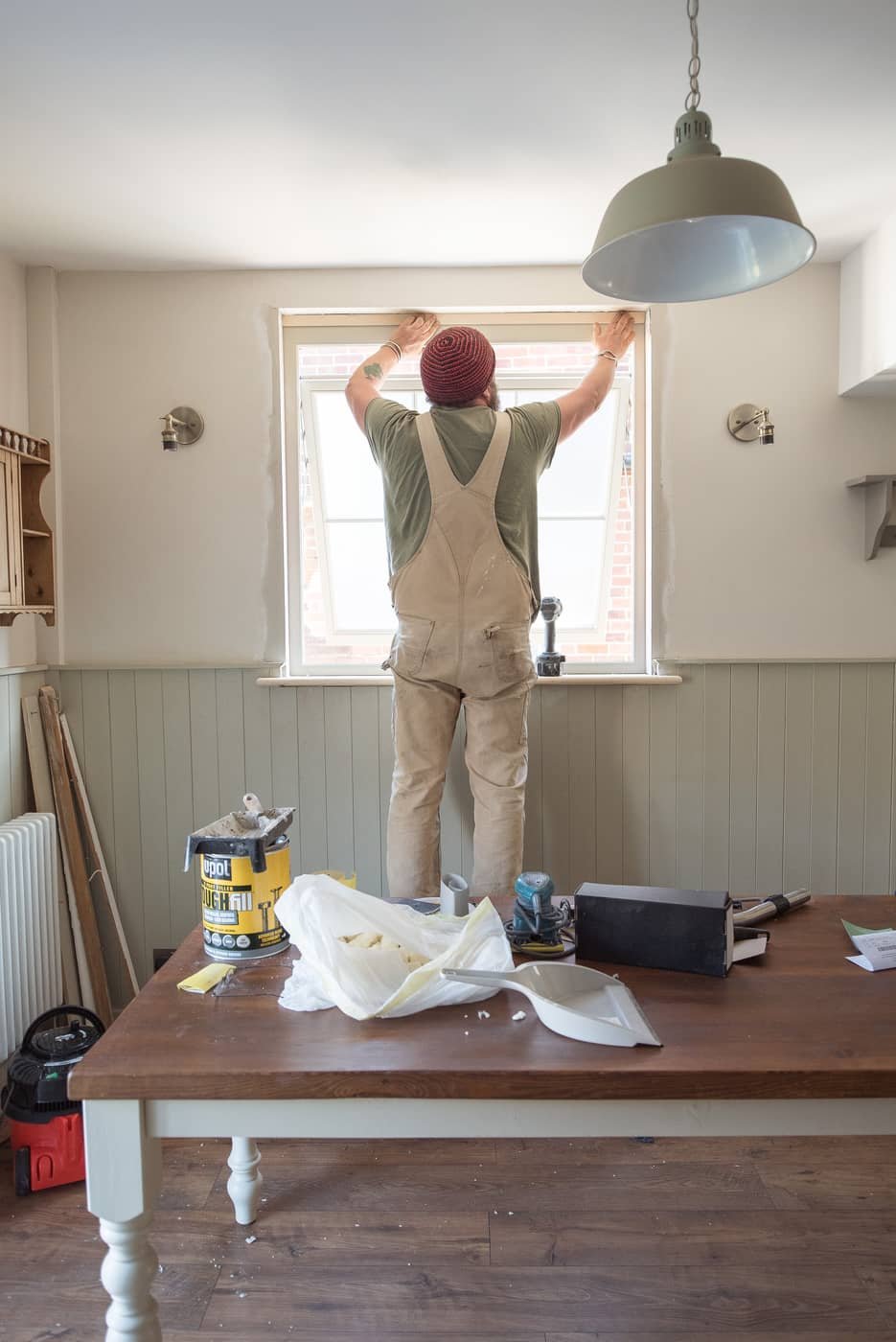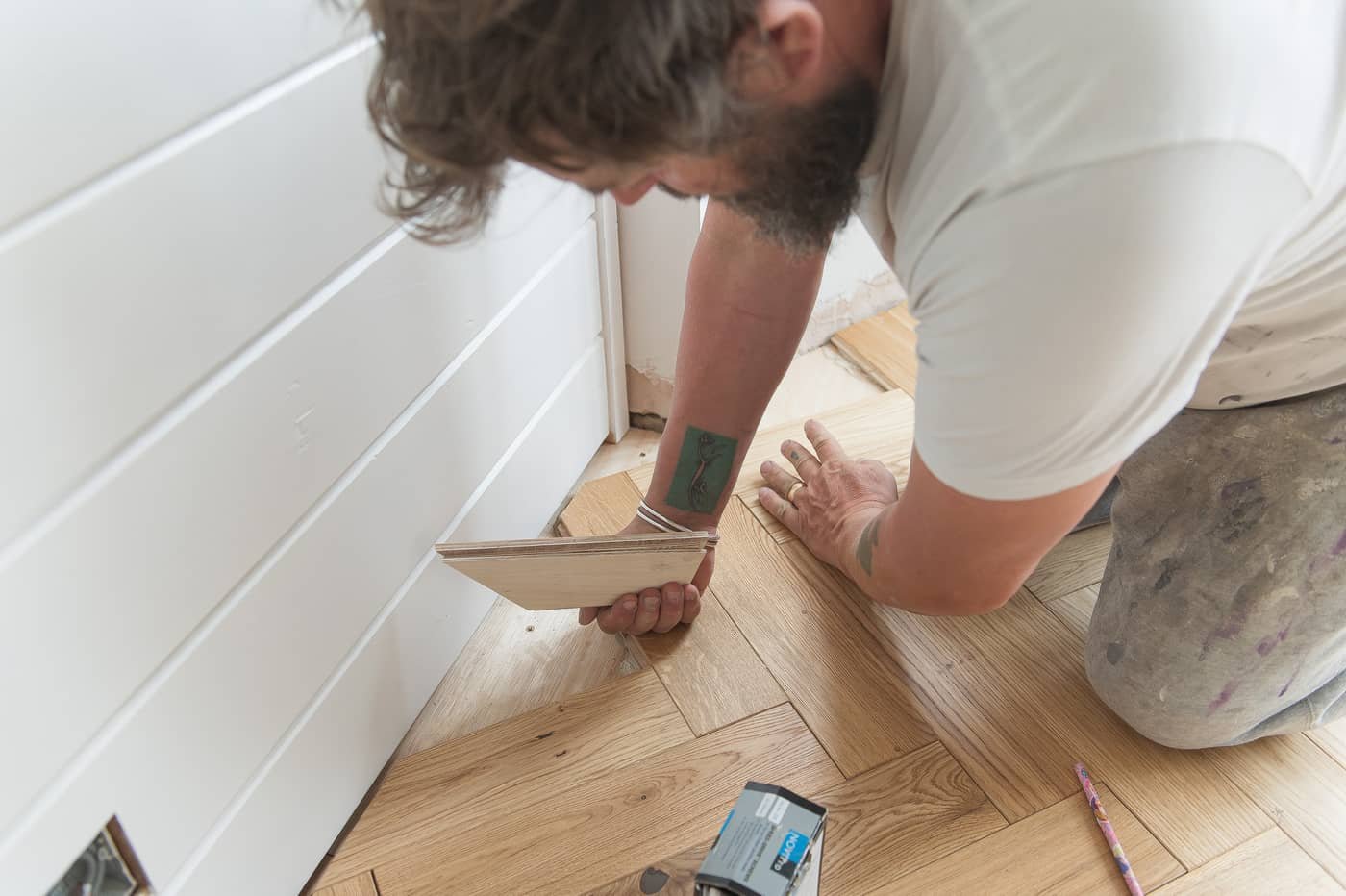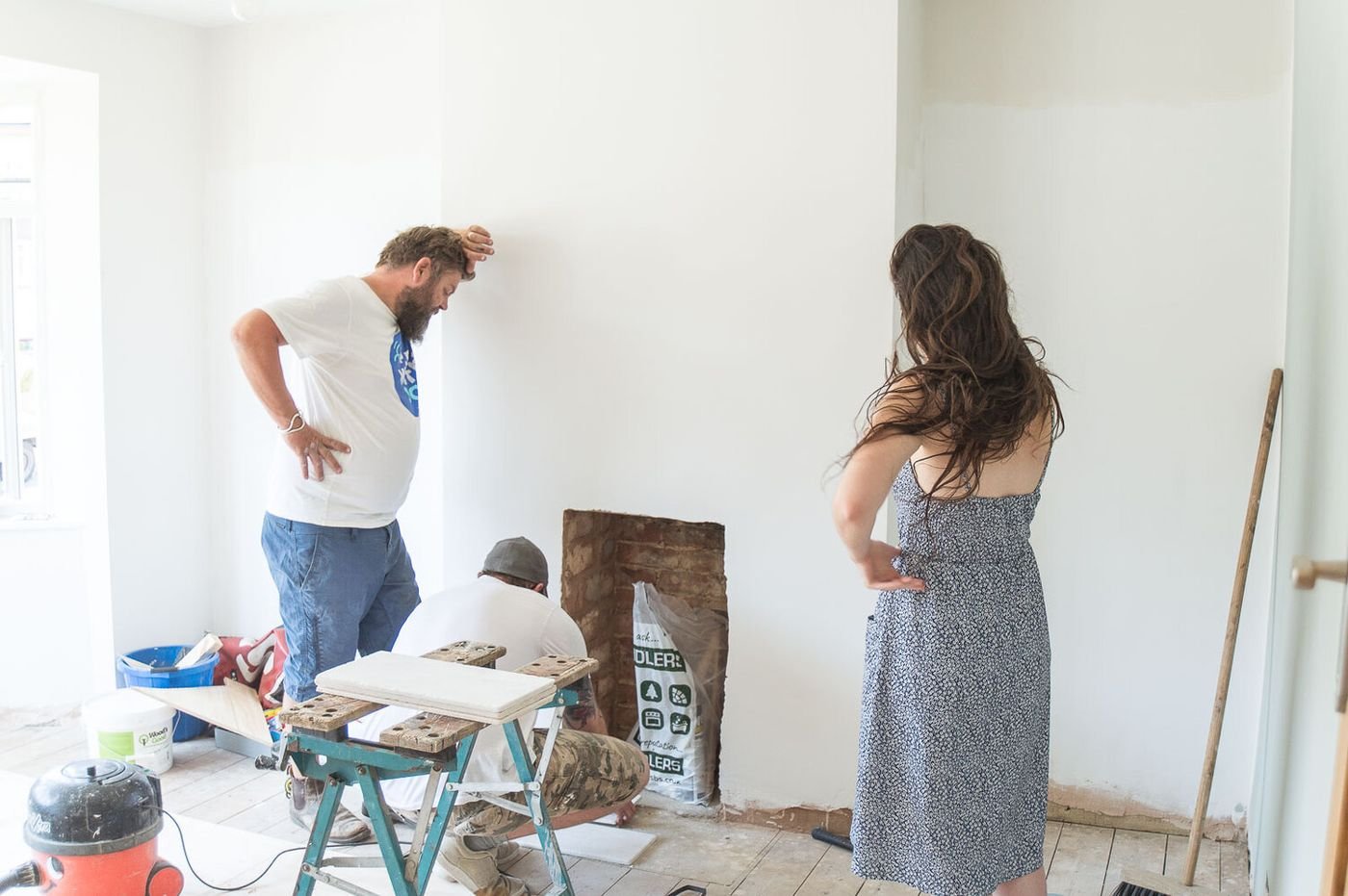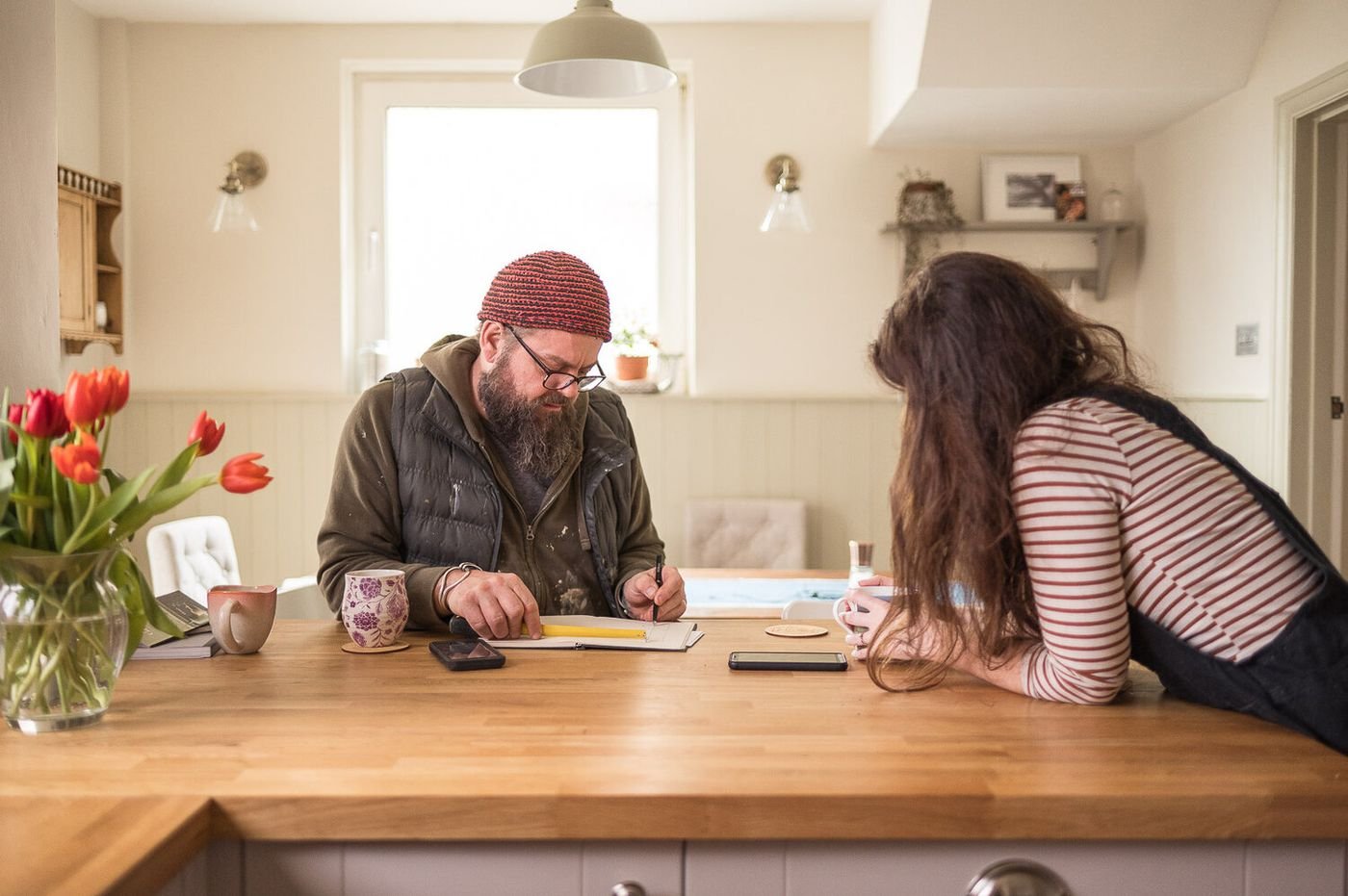How to find a builder – minus the cowboys
Knowing how to find a builder and choose a decent one can be an absolute minefield.
I’ve done it several times to varying degrees of success, and while these tips are here to offer a helping hand, I believe there’s a lot to be said for intuition too.
Whether you’re about to embark on a brand new build (in which case, you’ll probably have an architect to lean on, too), a substantial extension or a structural challenge, I hope this gives you plenty to think about before you set sail.
So if you’re ready to learn how to choose a builder – weeding out the cowboys along the way – here’s my step-by-step guide to finding the best.
A step-by-step guide for how to find a builder you can trust
Let the search begin
Chances are, you’re not the first person you know to have any renovations done, so if you’re wondering how to find a builder, it’s worth going to them first. Local friends, family and neighbours can share their honest experiences without wanting to let you down.
Here are a few things you should ask:
Would they recommend anyone they’ve used?
What made them brilliant?
Were they reasonably priced for what they offered?
Did they stick to their budget and timeframe?
Were there any issues that came up throughout the project that it’s worth flagging?
Local Facebook groups and circulars will also list the builders working in your area, but make sure to ask the same questions to anyone referencing them online, then take their answers with a pinch of salt. They might be related to the builder or working on commission.
You can also use a trusted trade association, like the Federation of Builders, to find reputable tradespeople in your area. Everyone on their books is strictly vetted and has undergone a range of reference checks, but it’s still down to you to find the one that’s right for you.
Whichever way you start your search, it’s worth shortlisting at least three potential options before you take the next step.
Watch out for fake news
Like any good project manager, it pays to do your research.
Rogue traders are annoyingly common and will often play some dodgy games to get work.
Fake reviews on online directories can be fairly common, and sometimes you’ll even find the logo of an official trade association on their website.
Of course, this could be legit, but it’s worth following up with the body in question before you part with any cash.
I’ve been seriously burnt in the past by trusting a company I later discovered was a total fraud. The time and money I spent trying to track down the owner, serve court warrants and liaise with his other victims, to ultimately get nothing sorted, was time and money I’ll never get back.
Check out their work
Whether you’re being referred by a friend or have found a builder independently, it’s worth looking at the standard of their finished work.
It’s hard knowing how to choose a builder without seeing concrete evidence of their attention to detail or how previous projects have held up, so ask.
Anyone that sings someone’s praises highly enough will be proud to show off their space.
When you go around there, be armed with any questions you haven’t asked before. Ask, what was it like having the builders in their home? Did they tidy up after themselves? Knock off early most days?
It’s all helpful advice when you have big plans afoot!
Early stages of building a house extension
Collect your quotes
When you’re ready to reach out to your chosen few, make sure to meet them in person.
It’s helpful if you and your partner (or anyone making the decision with you) are there to get a sense of the work they can do and the kind of person the builder is.
I personally think it’s much easier to gauge whether they’ll do a good job from the confidence and experience they demonstrate when you speak to them in person.
They should be asking you questions you hadn’t thought about yet, flagging any concerns, and suggesting great ideas upfront that shows their expertise.
And when it comes to the quote itself, make sure they offer it in writing and give you full details of what’s included. Itemised would be even better if possible.
Will it cover site maintenance, clearance, materials or supplies?
If so, will you be required to source anything in advance?
Will planning permission be required?
How about building regulations approval?
When can they start, and how long is it likely to take?
This way, you can compare like for like and get a sense of what you need to put aside.
A note about VAT
I know a few people who’ve gone under the table with a VAT-free deal, and while it’s definitely tempting, remember this:
Paying in cash means there’s no proof of the transaction, which will ultimately invalidate your contract.
It’s also just something we shouldn’t be encouraging when the country’s already on its knees. Paying taxes is key if we want our pensions one day!
Get it all in writing
Once you’ve reached this point, you’re ready to choose your builder.
You’re excited. They’re excited. Time to crack open the bubbly!
But not before the contracts have been signed.
Whichever side draws it up, make sure to go through it with a fine tooth comb and check that everything you’ve agreed is detailed in writing.
It should include the following:
Start and completion dates
Security measures
On-site safety
The cost of the work and materials (as agreed)
Details of the payment plan
Toilet arrangements
Hours of work
Cleaning up and waste disposal
If you’re using someone with many years of experience in the trade, they’ll be very used to this and probably have a blanket template. Just make sure it’s not all on their terms.
Make the money chat a priority
You’ve agreed on a price, but how would they like to be paid?
As I mentioned before, this should be detailed in your contract, but make sure you’re aware before they begin.
They should have a registered company bank account which you can pay into in instalments. Any request for cash is illegal, and you should avoid paying anything upfront unless it’s needed for specialist materials.
In all likelihood, you’ll be asked to pay in stages once each one is complete.
Guarantees, warranties and insurance
If you’re making big structural changes or building something from scratch, you’ll need to ensure the work is guaranteed.
A builder’s warranty (sometimes known as a structural warranty) should offer you peace of mind for at least ten years. It means that if anything goes wrong or defects are found, even several years after the work, it will be covered in your contract.
This type of insurance is usually taken out by the builders. But, if for whatever reason they don’t offer it (which is probably a bit of a red flag), you can sort it out yourself.
You should also check that the builder you’ve chosen has valid professional, personal and public liability insurance.
This protects you against any damage to your property and any accidents or injuries that might be caused by their work.
So now you know how to choose a builder
As a homeowner, knowing the fundamentals of choosing a builder is something you’ll need time and time again.
The same goes, to some degree, for finding trusted bathroom fitters, electricians and carpenters. Although, for smaller jobs, you may find the process much simpler.
If this is the first time you’re getting into the wonderful world of tradespeople, you’ll no doubt learn a lot more along the way, and we’d love to hear any other suggestions you might have.
It’s natural to feel overwhelmed with the amount of work you need to do, but there’s no need to rush. Play the long game, find a great team, and once the dust has finally settled on that project you’ve just conquered, you’ll have no regrets whatsoever on the effort you put in.
Happy renovating!
We’d love to support you!
We’re passionate about helping first time renovators tackle their projects in the correct order and in an organised way so that ultimately you make the most of your home, your budget and enhance your life when your renovation is finished.
How we can help you:
Join the How to Renovate a House online course + Reno Club community to make a head-start on planning your renovation. Connect with hundreds of other first time renovators controlling costs, saving time & reducing stress.
Get access to our free email series A Survivor’s Guide to Renovating






